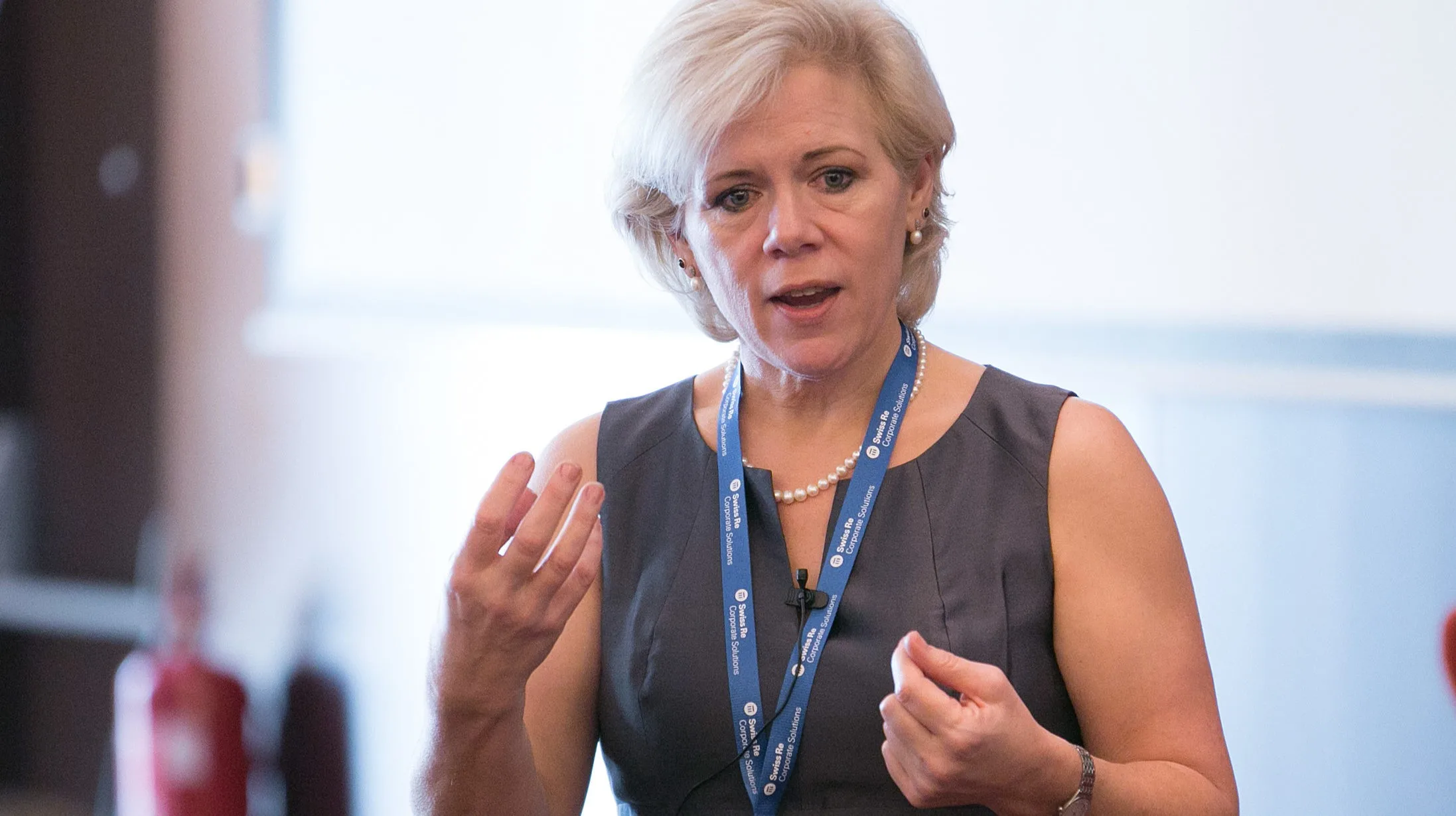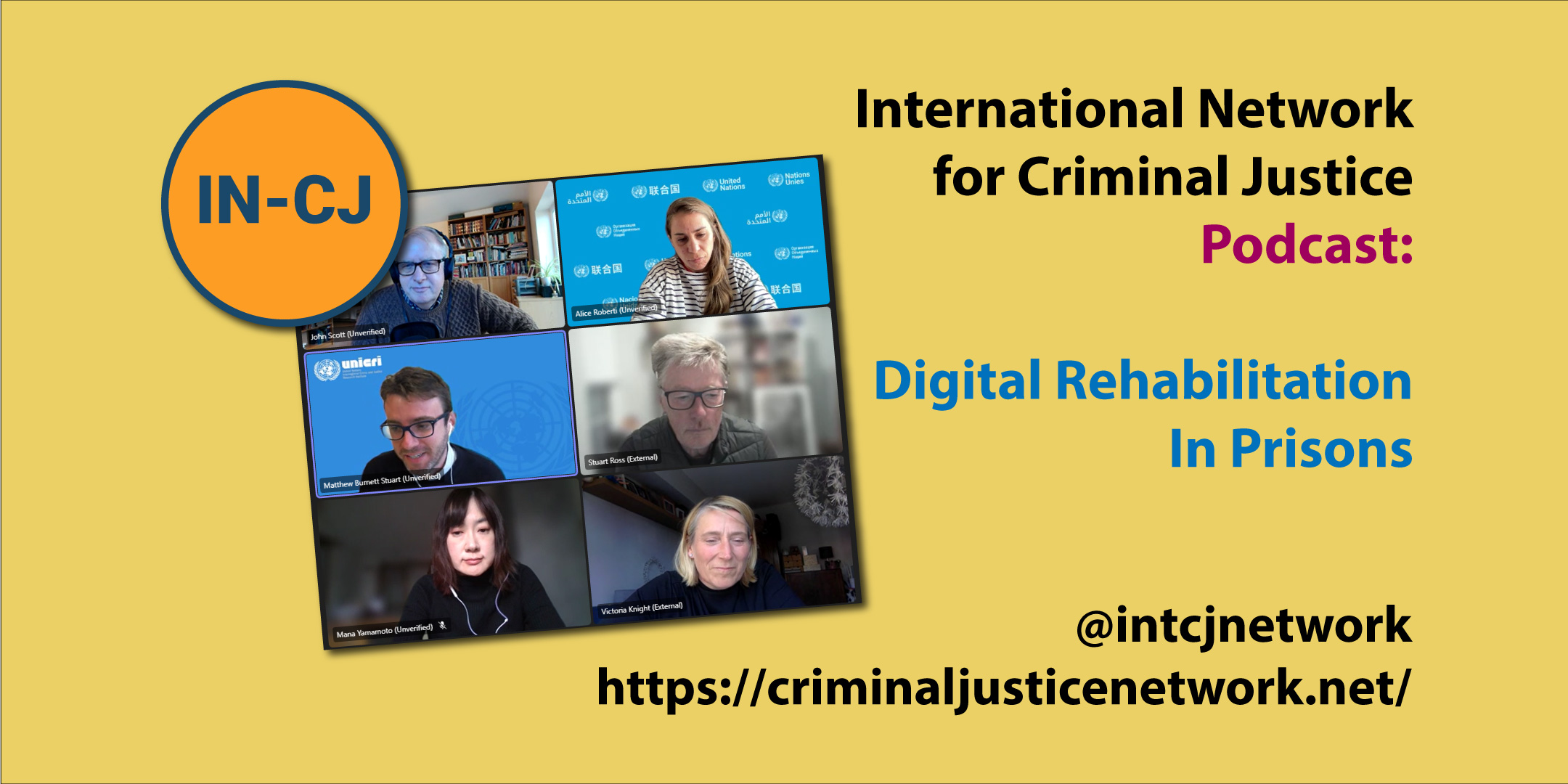IN-CJ Profile Professor Jo Clarke – Protecting Staff in Critical Occupations

The International Network for Criminal Justice (IN-CJ) is delighted to announce that Professor Jo Clarke has been invited to participate in a forthcoming series of podcasts. In these discussions, Professor Clarke will explore the significance and advantages of employing psychologically based professional resilience methodologies. This series aims to shed light on the support these methodologies provide to individuals working within various criminal justice settings across different countries, highlighting the global relevance and application of her pioneering work.
IN-CJ is excited to open the floor for contributions and questions in relation to the upcoming podcast series featuring Professor Clarke. We aim to deepen the dialogue on psychologically grounded professional resilience methodologies within the criminal justice sector. To enrich these discussions, anyone interested in participating can submit their questions, please reach out to IN-CJ directly info@criminaljusticenetwork.net.
Professor Clarke has extensively engaged in addressing issues related to professional management within criminal justice through her work with Petros. Focusing on resilience training, mental health support, and the development of adaptive models to improve the well-being of individuals in highly challenging environments.
Petros is an organisation that focuses on improving mental health and resilience within the workplace and in high-pressure professions, including the criminal justice system. It was founded by Professor Clarke to address the critical need for effective support and training aimed at preventing mental health issues and enhancing resilience among professionals. The foundation of Petros reflects Jo’s commitment to applying psychological insights and interventions to support staff wellbeing and organisational health, drawing on her extensive research and expertise in psychology.
One of Jo’s significant contributions is the Model of Dynamic Adaptation® (MDA), which was developed to protect staff in critical occupations by enhancing positive outcomes while mitigating negative effects. The MDA is designed to help individuals and organisations understand where and how to intervene effectively to promote optimal psychological health and adaptability within the workplace.
Jo’s work emphasises the importance of resilience in organisations, highlighting that resilient individuals and businesses benefit from lower sickness absenteeism, a healthier and more positive workforce, and increased profitability. Professor Clarke advocates for resilience training to equip people and organisations with the skills to adapt and thrive in changing circumstances, thereby improving overall performance and well-being.
Jo believes it is essential that managers of different criminal justice services must be able to support the psychological health and resilience of the colleagues they work with. This includes Trauma Preparedness Training, designed to equip staff with the knowledge and skills to prevent work-related harm and support individuals in roles with a high likelihood of exposure to traumatic experiences. Additionally, programmes such as Mind-Health for Managers and Decompression Sessions are tailored to provide comprehensive support and training for managing mental health and resilience in demanding work environments.
Jo’s work in the field of psychology, particularly within the context of criminal justice, underscores the critical need for proactive support and resilience training to ensure the well-being of professionals in high-pressure occupations. Her research and interventions offer valuable insights and practical tools for organisations seeking to enhance the psychological resilience and health of their staff.
This work revolves around several key areas, including:
- Mental Health and Resilience: The importance of mental health support and resilience training for staff in criminal justice settings, recognising the high-stress nature of such work and the impact it can have on individual well-being.
- Adaptation to Change: How individuals and organisations adapt to changes within the workplace, including the implementation of new technologies, practices, and policies, and the impact of these changes on staff performance and satisfaction.
- Professional Development: The ongoing development and support of staff through training and education, particularly in areas related to mental health awareness, resilience building, and adaptive strategies to cope with work-related stress.
- Organisational Support Systems: The role of organisational structures and support systems in fostering a healthy work environment, including initiatives designed to prevent burnout, reduce turnover, and promote positive psychological health outcomes among staff.
- Trauma Awareness and Preparedness: The need for training and support around trauma awareness and preparedness, recognising that criminal justice professionals may be exposed to traumatic situations as part of their work.
Foundational to Jo’s present work is “Sustaining Probation Officer Resilience in Europe (SPORE): A Transnational Study” from 2013. In this report, Jo considered how enhancing the resilience of probation officers across various European countries could be better achieved. Supported by the European Union, this study was a collaborative effort involving multiple partners, initiated by the State Probation Service of Latvia, and supported by Viru Prison (Estonia), CEP, European Probation Network (Netherlands), Avans University (Netherlands), University of York (United Kingdom), and Fund IGA (Bulgaria).
The study explored several key aspects related to probation officer resilience, including job satisfaction, stress-related growth, and adaptive capacity, across different national contexts within Europe—specifically Bulgaria, Estonia, Latvia, and the Netherlands. It aimed to understand the factors contributing to resilience in the face of the challenging and often stressful environment that probation officers work in. The research methodologies included quantitative studies through questionnaires, focus groups, desk studies, and the development of working groups to generate action plans.
Some of the key findings include:
- Job Satisfaction: Insights into how job satisfaction levels vary across countries and how it impacts probation officers’ resilience.
- Stress-Related Growth: Examination of the capacity of probation officers to grow from stressful experiences, and how this capability differs between countries.
- Adaptive Capacity: Analysis of probation officers’ ability to adapt to various challenges and stressors in their work environment, including country-specific findings.
The study also proposed Key Recommendations for improving the resilience of probation officers, emphasising the importance of a supportive work environment, empowerment, trust, peer cohesion, supervisor support, and organisational climate. By addressing these areas, Jo contributed to the development of more resilient probation officers who are better equipped to handle the complexities of their roles, ultimately leading to more effective probation services across Europe.






